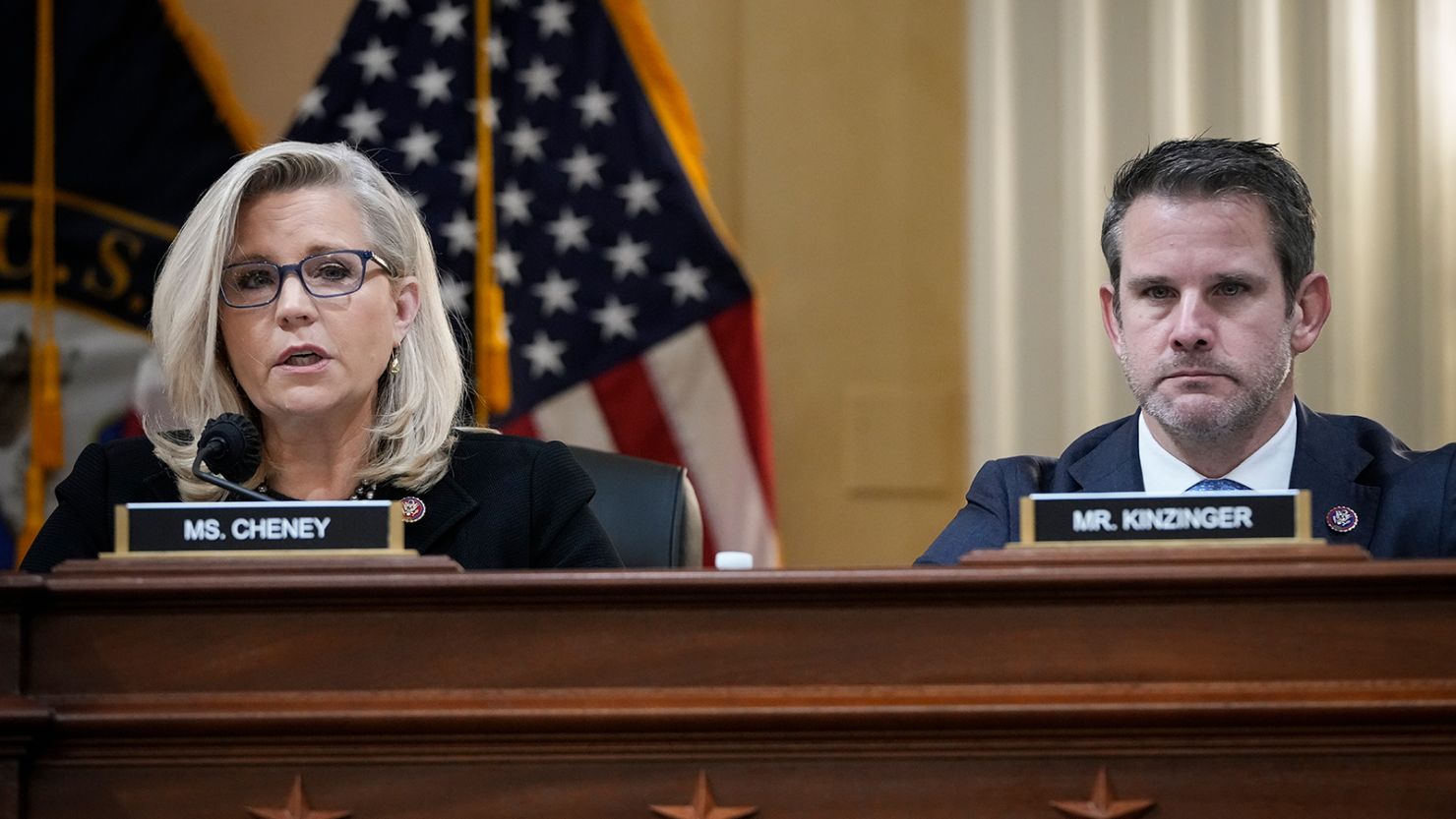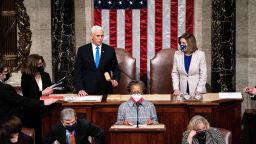Republican Reps. Liz Cheney and Adam Kinzinger blasted former President Donald Trump’s recent comments related to the 2020 election as he teased a 2024 White House bid over the weekend.
Speaking at a campaign-style rally in Texas on Saturday, Trump said he would consider pardoning those who were charged in connection with the deadly January 6, 2021, attack on the US Capitol and, on Sunday, he released a statement saying he had wanted then-Vice President Mike Pence to overturn the presidential election.
“Trump uses language he knows caused the Jan 6 violence; suggests he’d pardon the Jan 6 defendants, some of whom have been charged with seditious conspiracy; threatens prosecutors; and admits he was attempting to overturn the election,” Cheney tweeted Monday. “He’d do it all again if given the chance.”
Kinzinger, taking aim at Trump’s statement about Pence, called it “an admission, and a massively un-American statement.”
“It is time for every Republican leader to pick a side… Trump or the Constitution, there is no middle on defending our nation anymore,” he tweeted.
The comments from the pair – both longtime Trump critics who serve on the January 6 House select committee – follow a deluge of falsehoods from the former President about the 2020 election, the US Capitol insurrection and the series of financial and election probes he’s facing. While Trump did not explicitly say he will run for president in 2024 – doing so would trigger a series of legal and campaign finance requirements – he vowed on Saturday, “We are going to take back the White House.”
Cheney and Kinzinger are among the 10 Republicans who voted to impeach Trump during his second impeachment early last year.
In his Sunday statement, Trump also falsely claimed that a bipartisan group of lawmakers working to reform the Electoral Count Act proves his claim that Pence had the power, according to the ECA, to overturn the 2020 election. Though the Act is vague, it is clear the role of the vice president is ceremonial and does not include the power to overturn the result of a presidential election.
GOP Sen. Susan Collins of Maine, while entering a meeting on reforming the act, said Monday that Trump’s comments “underscore the need for us to revise” it.
The former President’s claim, the Maine Republican said, “demonstrated the confusion in the law and the fact that it is ambiguous,” adding, “I think the 12th Amendment is pretty clear, but the Electoral Count Act, which was written in 1887, clearly needs to be revised.”
Though Cheney voted with Trump more than 90% of the time, her vocal opposition following the insurrection prompted the former President to endorse attorney Harriet Hageman to challenge Cheney for the GOP nomination in Wyoming’s lone House district.
The congresswoman has repeatedly expressed confidence that she can win reelection, and she said in September that a vote for her Trump-endorsed Republican opponent is a “vote for somebody who’s willing to perpetuate the big lie, somebody who’s willing to put allegiance to Trump above allegiance to the Constitution.”
The primary race is quickly shaping up to be one of the most notable proxy contests in the greater fight over the future of the Republican Party, something Cheney openly acknowledged in a “60 Minutes” interview last year.
“I think it’s going to be the most important House race in the country in 2022,” Cheney said. “And it will be one where people do have the opportunity to say, ‘We want to stand for the Constitution.’ “
Kinzinger, meanwhile, announced in October that he would not seek reelection for his Illinois seat, stating that he “cannot focus on both a reelection to Congress and a broader fight nationwide.”
This story has been updated with comments from Sen. Susan Collins.






